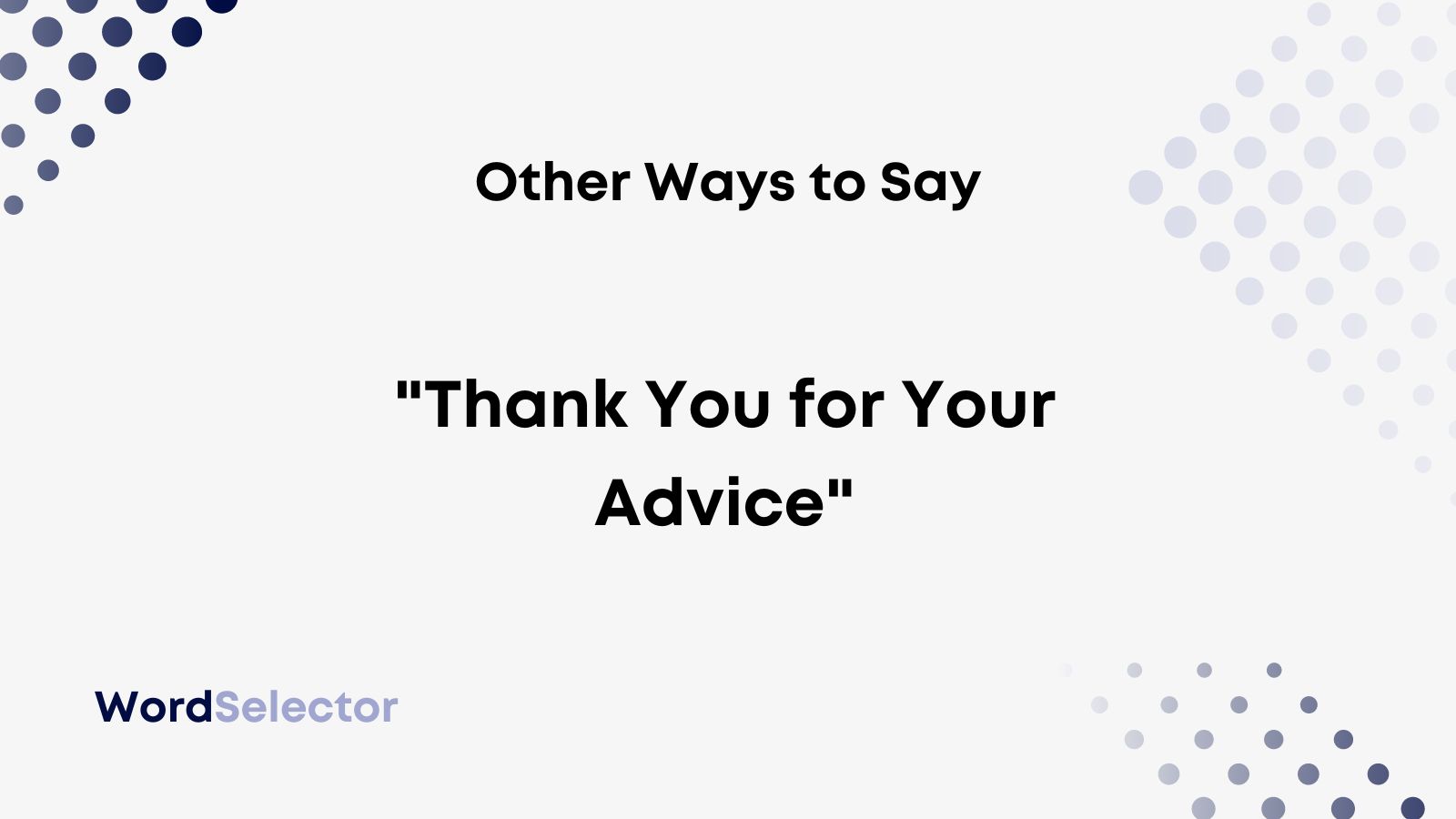Do you want to know the best way to thank someone for the advice they gave you?
If you think “thank you for your advice” is too unprofessional or blunt, you’ve come to the right place.
Don’t worry; this article will show you how to say “thank you for your advice” in an email or other medium.
Other Ways to Say “Thank You for Your Advice”
- Your guidance has been constructive
- Thanks for your wise counsel
- I appreciate your valuable advice
- I’m grateful for your insights
- Thank you for your help
- Thanks for sharing your expertise
- I value the advice you’ve given me
- Thanks for pointing me in the right direction
- Your input has been invaluable
- I’m thankful for your thoughtful recommendations
- Thank you for your constructive feedback
KEY TAKEAWAYS
- “Thank you for your advice” works well in most formal cases to show you appreciate someone’s guidance.
- Try “your guidance has been constructive” as a more formal alternative when necessary.
- “Thanks for your wise counsel” is an excellent informal synonym that helps to mix things up.
Keep reading to learn how to say “thank you for your advice” professionally. We’ve gathered helpful tips to show you the best way to use formal and informal synonyms.
You can also read the final section to learn whether the phrase is correct. Then, you’ll know if you can include it in your writing going forward.
Your Guidance Has Been Constructive (Formal)
It’s worth starting with “your guidance has been constructive.” It’s a formal alternative that allows you to be respectful and sincere when thanking someone for their feedback or advice.
If something is “constructive,” it means you learned a lot from it.
So, it’s best to use this when thanking someone with a lot of knowledge or experience. Try it when thanking a professor.
You can also refer to this email sample to learn a bit more:
Dear Professor Church,
Your guidance has been constructive for me.
I’ll let you know as soon as I’ve completed this assignment.
Thank you so much,
Sandra Powder
You can also use it when writing to your employer. If they’ve reached out to help you with something, this is an excellent phrase to use.
So, check out this sample email to learn a bit more about it:
Dear Mr. Hope,
Your guidance has been constructive in helping me complete this project.
I want to express my sincerest thanks to you.
Yours,
Georgia Dickinson
Thanks for Your Wise Counsel (Informal)
It’s good to use something like “thanks for your wise counsel” in more informal situations.
Of course, this is another way to say “thank you for your advice” that shows you how to express gratitude politely.
You can generally use this when thanking a coworker. If you reached out to them to ask for help, this could be a good way to accept any advice they gave you.
For the most part, it’s friendly and respectful at the same time. That’s what makes it such a good choice in your writing.
Perhaps this email example will also help you to understand it:
Hey Max,
Thanks for your wise counsel during this project.
I knew I could count on your ideas to get me through this.
All the best,
Melissa Gardner
Alternatively, you can review this text message sample to learn more:
Thanks for your wise counsel, Benny. I’ve managed to figure a few things out that I wouldn’t have been able to do alone.
Is It Correct to Say “Thank You for Your Advice”?
It is correct to say “thank you for your advice.” It’s a great way to let someone know you appreciate all their help, especially if you reached out to them specifically.
Also, this email sample should help you to understand a bit more about it:
Dear Adrian,
Thank you for your advice, as it was really helpful here.
I’m so glad I could rely on you to help me figure out what to do.
Best regards,
Don Penn
Make sure you don’t make a simple mistake with your choice of wording, though! After all, it’s easy to confuse “advice” with “advise” here.
For instance:
- Correct: Thank you for your advice.
- Incorrect: Thank you for your advise.
Also, if you’re worried about being too repetitive with this phrase, fret not! We’ve still got a few extensions to share with you that’ll help you to keep things interesting.
For example:
- Thank you for your advice on this matter
- Thank you for your advice in advance
- Thank you for your advice and encouragement
As you can see, these extensions allow you to sound more specific and polite. It’s a great way to keep the peace and let someone know how much you appreciate their help.
Before you go, don’t forget to bookmark this page. Then, you can keep coming back to learn what to say instead of “thank you for your advice.”

